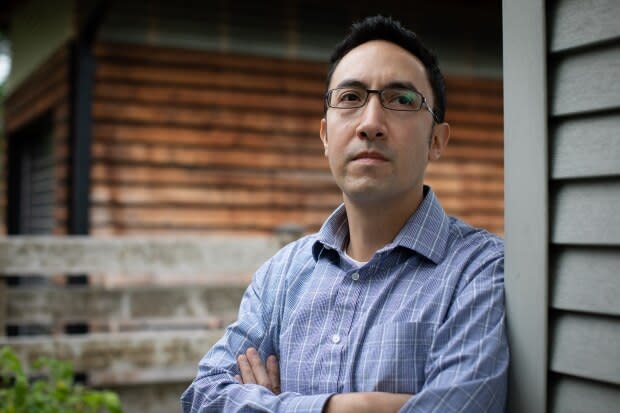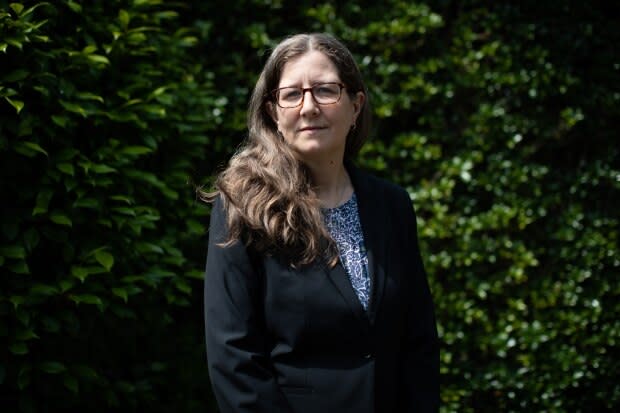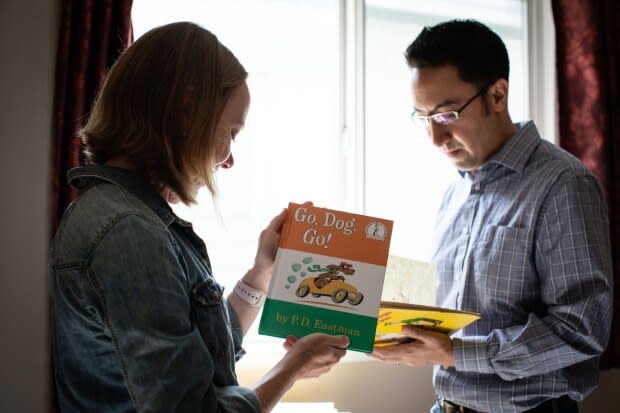Vancouver couple's international adoption paused by COVID-19 processing delays
He isn't officially a dad.
Still, Gary Lam finds ways to be an involved parent.
He knows where his adopted child will sleep (upstairs), what he will play with (Cookie Monster, Sand Truck), and even what he will be named (Elliot).
The only thing Lam, 42, doesn't know? When — or even if — his child will come to Canada.
"You form an attachment to that child, even if you've never met them before," said Lam "We just want to get him home."

The assistant film editor and his wife, Mariette Baynton, have been trying to adopt a child from South Korea since late last year.
In March, they were placed with a sixteen-month-old boy; they even got to see his picture.
Now, though, the couple says federal government delays, attributed to COVID-19, have threatened to upend their application in its final stages, potentially preventing them from adopting the boy who is ready and waiting.
They, and their adoption provider, Sunrise Family Services Society, also worry South Korea could put Canadian adoptions on hold until further notice, if it appears the federal government is unable to process applications.

"Our biggest fear is that, if things don't open up, at some point [South] Korea is gonna have to move on to another family — or maybe another country," said Lam.
"It's very scary."
File number needed
On March 20, as businesses and Canadian government offices shuttered amidst rising COVID-19 cases, the couple applied for Permanent Resident status, for what was then their unknown child.
They claim their submission was signed and received by the Immigration, Refugees and Citizenship Canada (IRCC) office in Sydney, N.S., on March 23.
But while their B.C- based adoption service paired them with the boy, whose details cannot be shared due to privacy concerns, weeks went by without a word from the IRCC.
The couple says the department simply needs to open their package, and assign them a file number, so they can proceed with their application.
"Generally, it takes about two months to get a response from the IRCC" said Lam.
"About a month in, we hadn't heard anything."
Office not processing applications
Calls to the department yielded few answers.
The couple says one service representative told them the IRCC was opening packages backdated from mid-March; another told them mid-February.
A third representative allegedly told them they needed to resubmit the entire thing.

In July, after months of back and forth with still no official record of their package, their adoption agency informed them that IRCC's Sydney office had been closed for months.
"Four phone calls, three web form applications," said Lam "No one told us the office was closed and not opening applications."
Immigration Canada did not respond to CBC's request for comment in time for this story's deadline.
Submission deadline set to pass
Adoption agencies, meanwhile, say uncertainty around the backlog could force countries to abandon Canadian applications all together, as best practice dictates children available for intercountry adoption be placed with adoptive families as soon as possible.

"If there is a long delay with immigration, that means a child will remain in care for a significant period of time" said Delia Ramsbotham, managing director of Sunrise Family Services Society.
"It also may not align with the legal requirements in the country of origin."
Ramsbotham says Sunrise has asked IRCC to make an exception for high priority cases, such as finding a way to verify signatures and identities without relying on physical documents.

With South Korea only fielding adoption submissions every quarter, meanwhile, Lam and Baynton say their dream of parenthood has been pushed back to at least September — assuming their prospective son is still available.
"Employers have had to adapt, and I don't think the IRCC is showing they're adapting" said Lam.
"I feel like if I can get a haircut they can reopen their mail room."


